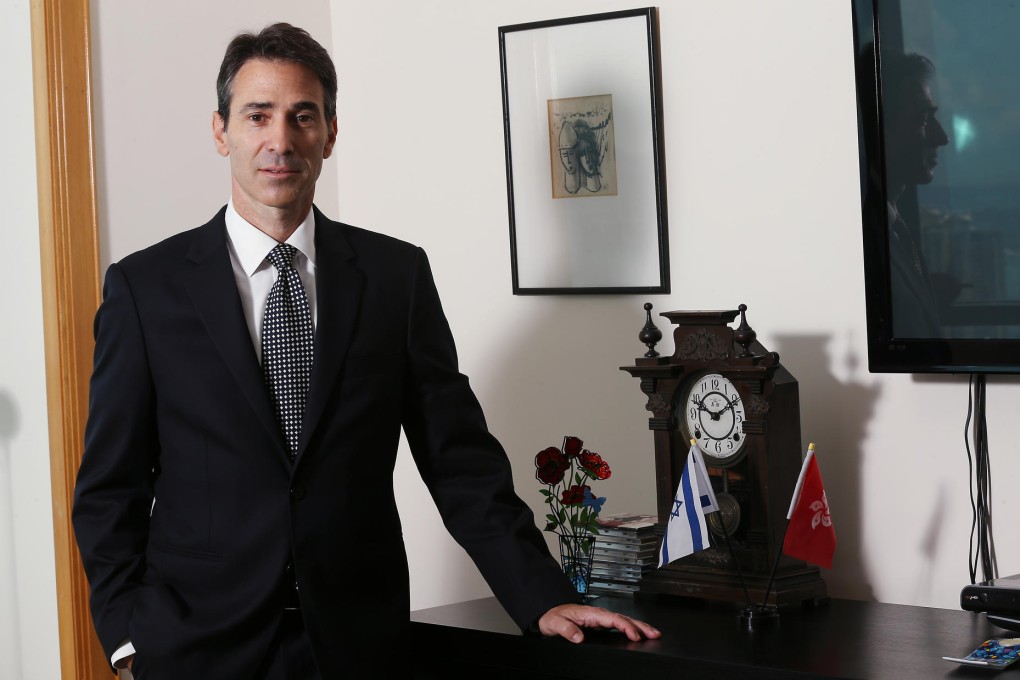'Sophisticated investors' look beyond headlines on start-up nation Israel, top envoy to Hong Kong says

Years of armed conflict have not put off Israel's entrepreneurs, with the country's IT industry ripe for investment from Hong Kong and mainland China, the country's top envoy in the city says.
Sagi Karni, Israel's consul general to Hong Kong and Macau, admitted the country "suffered" as the media focused on tensions with Palestinians, but said "sophisticated investors" could not fail to appreciate the economic achievements of the "start-up nation" in the face of decades of geopolitical strife.
"In the news you always ... read bad news," Karni said. "But the fact is Israel is home to every important technology company in the world. We don't force Apple, Google, Intel, Cisco, Motorola, Huawei or Alibaba to operate in Israel and have R&D centres."
He said businesses were not put off by the "conflict we had last summer in Gaza" - a reference to the 50 or so days of clashes in July and August that were among the most intense in years. UN estimates said 69 per cent of the 2,104 casualties were civilians, of whom only six were Israeli. The conflict started when Israel launched a military operation in the Gaza Strip, which is controlled by the Hamas.
"People here [in Hong Kong] are very realistic and know to distinguish between politics and business," Karni said. "They read ... several [newspapers] but they also know how to read corporate balance sheets."
Israel's burgeoning tech sector has attracted Hong Kong attention, with Li Ka-shing's venture-capital fund, Horizons Ventures, shoring up its investment in a country of eight million that boasts 3,800 start-ups. The fund had invested in at least 28 Israeli tech start-ups according to media reports, making up more than a third of its global portfolio.